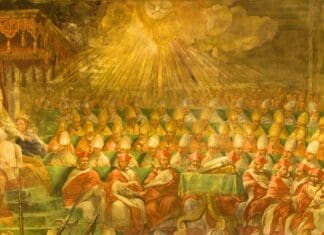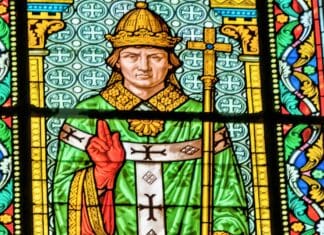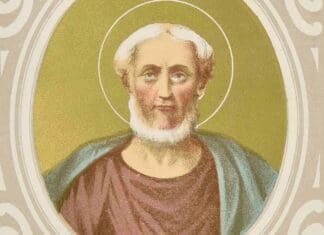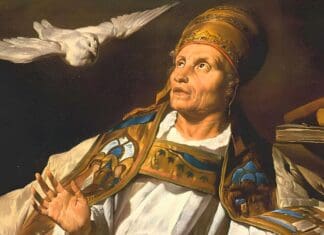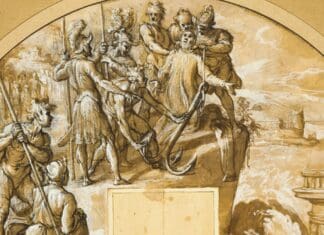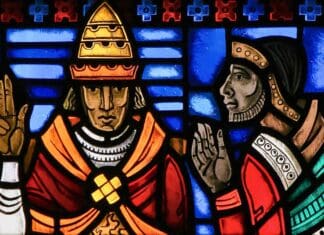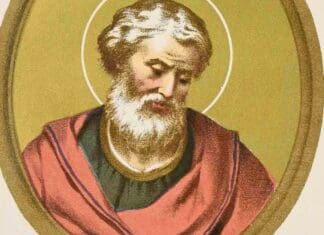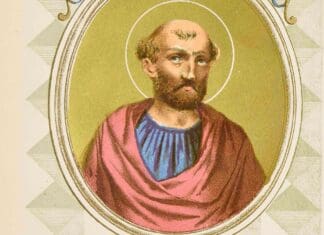Pope Saint Sylvester
Pope Saint Sylvester surely was appointed by God to govern his holy church in the first years of her temporal prosperity and triumph over her persecuting enemies. His pontificate was one of the most important, crucial and eventful of all Popes.
Blessed Pope Urban V
Pope Urban V, born Guillaume de Grimoard, was a spiritual leader and reformer, known for his humility, scholarly pursuits, and efforts to restore papal prestige.
Pope Saint Damasus
Pope Damasus I was a 4th-century bishop of Rome, known for commissioning the Vulgate Bible and transitioning the liturgy from Greek to Latin.
Pope Saint Gregory III
Pope Gregory III, who led from 731 to 741, staunchly defended the veneration of holy images against Emperor Leo II's iconoclastic policies.
Pope Saint Clement
Saint Clement, early Christian leader and Bishop of Rome, revered by the Petrine faction, distinct from Pauline followers.
Pope Saint Leo IX
Leo IX, born Bruno of Egisheim, was a reformative pope known for combating simony and clerical immorality and influencing the East-West Schism's onset.
Pope Saint Anicetus
Pope Saint Anicetus, the 11th pope, succeeded St. Pius towards the year c. 153, and reigned till about 168. He condemned Montanism, conferred with St. Polycarp on the Paschal date controversy, and forbade priests from growing their hair. He was martyred and is venerated on April 17.
Pope Saint Martin I
Pope Saint Martin I, martyred after condemning Monothelism and clashing with Byzantine authority, is the last early pope venerated as a martyr.
Pope Saint Telesphorus
Pope Saint Telesphorus, a Greek anchorite, led the Church under Emperor Antoninus Pius and established enduring Christian practices around 125-138 AD.


